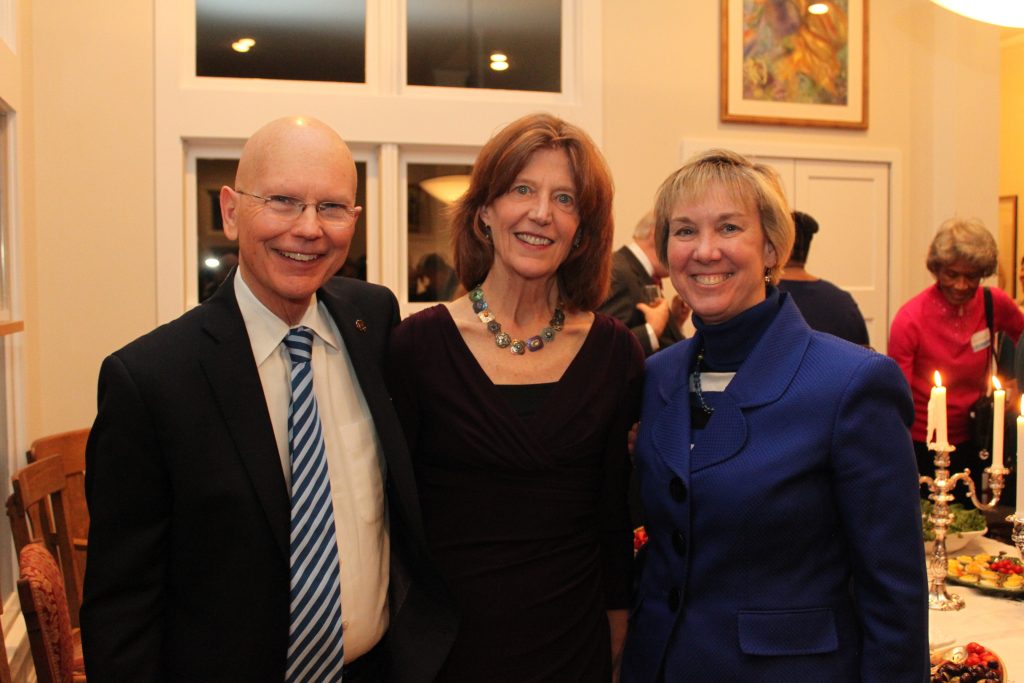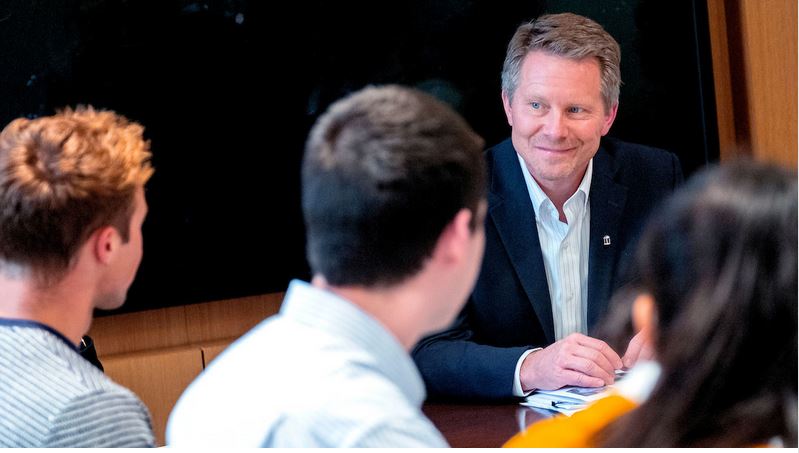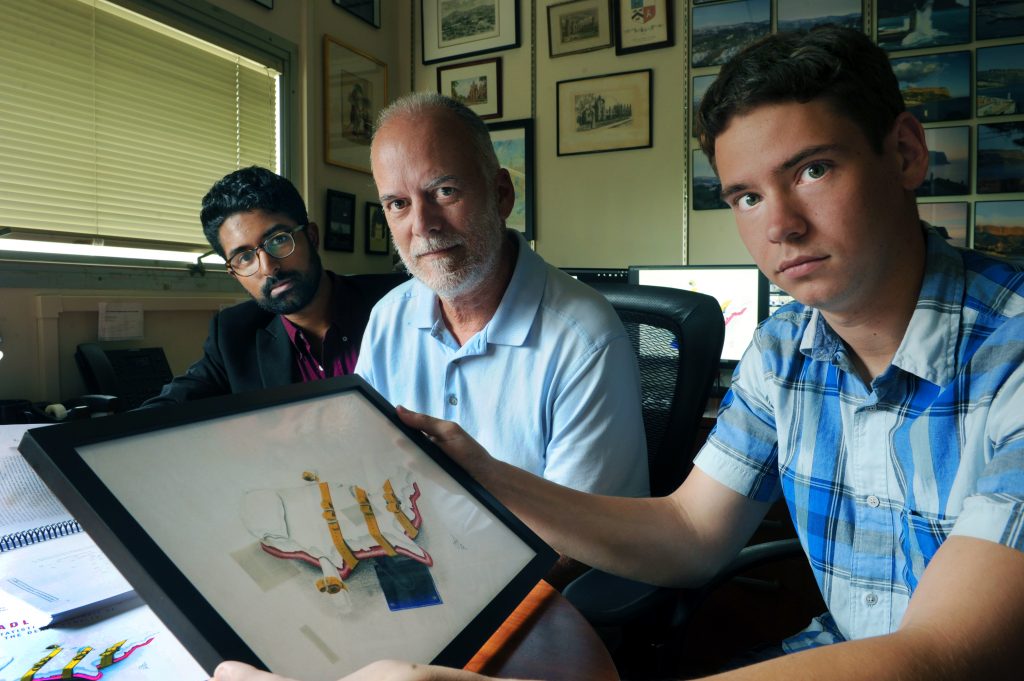The 2018-2019 academic year marks two important anniversaries for the Center for European Studies (CES) at the University of North Carolina at Chapel Hill: its founding 25 years ago to advance understanding of the social, political, and economic events that shape contemporary Europe, and the establishment of its TransAtlantic Masters (TAM) Program 20 years ago.

On September 6, the center hosted a lecture and reception to celebrate these milestones. Ambassador Caroline Vicini, deputy head of the EU delegation to the U.S., presented the keynote lecture. Ron Strauss, executive vice provost and chief international officer, and Katie Lindner, executive director of CES, provided opening remarks. Vicini reflected on historical milestones for the European Union and its relationship with the United States, emphasizing the importance of the transatlantic partnership for the flourishing of trade, cultural exchange and democracy.
Following the keynote lecture, the celebration continued with dinner and remarks by John Stephens, director of the Center for European Studies and Gerhard E. Lenski Jr. Distinguished Professor of Political Science and Sociology; Gary Marks, Burton Craige Professor of Political Science and co-founder of CES; Konrad Jarausch, Lurcy Professor of European Civilization in the Department of History and co-founder of CES; Milada Vachudova, Jean Monnet Chair of European Studies; and Christiane Lemke, a visiting German Academic Exchange professor hosted by the center.
The Center for European Studies is one of seven global and area studies centers at Carolina. Its work helps strengthen Carolina’s global presence and deepens the University’s ability to serve as a scholarly and cultural resource on European nations and transatlantic relations. The center was founded in 1993 and is distinguished as both a National Resource Center by the US Department of Education and a Jean Monnet Center of Excellence by the European Union.
The TransAtlantic Masters Program, founded in 1996, connects Carolina to 10 partner universities across eight European countries. In the two-year long program, students complete a semester-long core module at Carolina to establish a comparative framework for contemporary European societies and politics, followed by two immersive overseas semesters at the student’s choice of European host universities in Bath, Berlin, Grenoble, Madrid and Siena
Story by UNC Global




